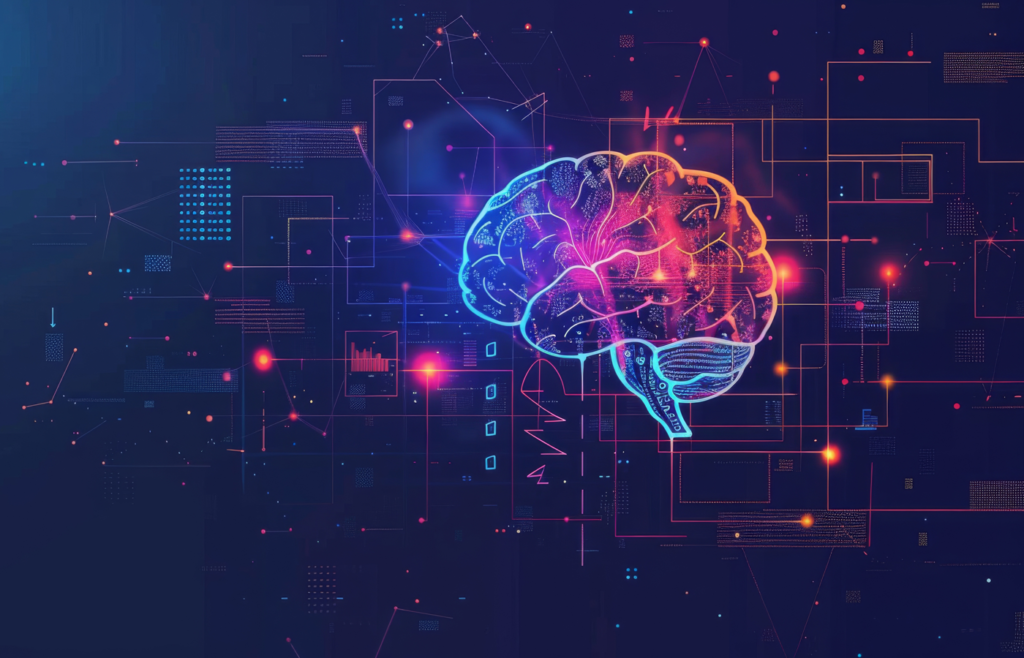Artificial intelligence is becoming a commonplace tool in project management; it is no longer an idea from the future. Project managers now have new tools at their disposal to identify project risks, optimize resources, and improve workflows thanks to AI technologies.
Companies who utilize AI-driven technologies complete 61% of their projects on time, compared to 47% for those that do not, according to the Project Management Institute’s (PMI) Pulse of the Profession report. Additionally, according to their study, 69% of projects in AI-adopting businesses achieve 95% or more of their projected commercial benefits, compared to 53% in non-AI-using businesses. These figures demonstrate how artificial intelligence (AI) can enhance project results.
What Applications Does AI Have for Project Management?
Project managers can greatly benefit from the application of artificial intelligence in data analysis, risk management, and teamwork.
Predictive analytics and data analysis
In order to help project managers comprehend the elements that led to previous triumphs or failures, artificial intelligence (AI) can analyze enormous volumes of historical project data to find patterns and trends. AI PM solutions are able to predict project outcomes, including budget requirements and completion deadlines. To ensure the best possible distribution, they can also forecast future resource requirements.
Project managers can proactively address problems before they become more serious by using predictive analytics technologies.
Risk Management
Through data analysis, you may detect potential hazards, evaluate their impact and likelihood, and efficiently prioritize them to improve risk management with the use of artificial intelligence. AI enables proactive management and faster issue resolution by keeping an eye on project progress and external conditions and detecting new dangers in real-time.
Interaction and Cooperation
AI chatbots help team members communicate instantly by responding to questions and giving updates continuously. They take meeting notes, summarize and transcribe them, highlight important actions, annotate tasks from the notes, and link with Microsoft Teams and Slack to provide thoughtful suggestions.
Five AI Project Management Benefits
The uses of AI in project management are growing all the time, and they include automated task management and assistance with project planning.
Automated Task Management:
AI can automate and simplify repetitive processes, including allocating work to team members, setting up meetings, and updating status reports. Project managers are able to concentrate on more important facets of project planning and execution as a result.
Effective Resource Allocation:
AI algorithms may evaluate past project data, current workload, and team member skill sets to optimize resource allocation. This ensures that the right people are assigned to the right tasks at the right time, maximizing productivity and minimizing resource waste.
Assisted Project Planning:
By examining project needs, limitations, and dependencies, artificial intelligence (AI)-powered project management solutions may help create thorough project plans. These resources are able to create accurate schedules and pinpoint any possible bottlenecks.
Enhanced Accuracy:
Although artificial intelligence cannot guarantee 100% accuracy, it can greatly improve accuracy over conventional approaches by reducing human error. Even while accuracy may never be perfect, small steps toward improvement can nonetheless have a big impact on project management by enhancing decision-making, lowering risks, and improving project results.
Enhanced Team Collaboration with AI:
A more cohesive team atmosphere makes it possible for members to work together more easily, which raises morale and improves project performance. Collaboration solutions driven by AI have the potential to improve team member coordination and communication.
Four Important Things to Think About Before Adding AI to Your System
It’s not always the best course of action to integrate AI. Prior to using this potent technology, be sure you have thought through critical issues such as prices, security, and data quality. In particular, make sure your strategy takes into account the following factors:
Data integration and quality:
AI’s efficacy is reliant on the accuracy and comprehensiveness of the data it examines. Companies need to make sure that their data is correct, current, and properly integrated throughout all of their systems.
Change management:
Implementing AI necessitates a change in the organization’s culture. Team members and project managers need to be trained to trust AI tools and use them appropriately. It can be less difficult to overcome resistance to change if AI’s capabilities and advantages are clearly communicated.
Security and privacy:
Take into account the security and privacy consequences of incorporating AI, particularly in cases where sensitive data is at stake. Verify that the AI solution conforms with applicable laws and guidelines to safeguard the privacy and confidentiality of data.
Expense of execution:
Even while AI has the potential to save costs over time, the initial outlay for AI tools and technology may be substantial. To make the upfront expenses justifiable, organizations need to assess the return on investment (ROI).
How to Integrate AI Into Your Project Management System
You can use any project management tool that best meets your requirements when incorporating AI into your system. For this article, I’ll be using Asana, but you can modify the procedure to work with other PM systems.
Certain project management solutions come with AI integrated in, either for free or for a fee. For example, all paid programs provide access to Asana Intelligence. These AI capabilities, meanwhile, can have limitations. You may need to integrate a third-party app if you require certain AI functions.

